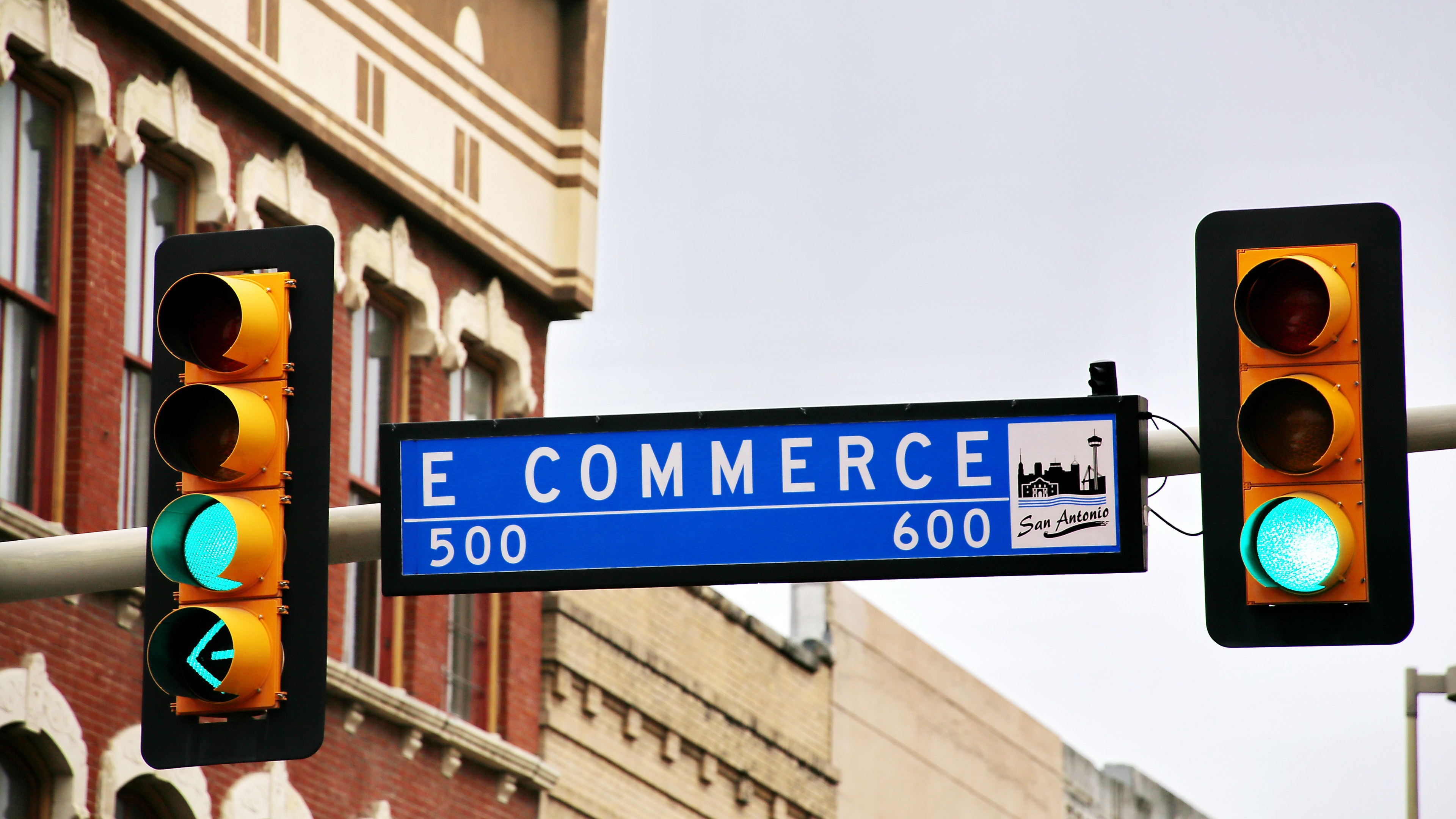The ubiquity of internet access and the COVID-19 pandemic have accelerated the growth of e-commerce. Technology innovations have enabled businesses of all sizes and individuals to sell products online without geographic limitations. As e-Commerce has been steadily increasing, its share of total retail sales will likely increase to 25% by 2025.
The pandemic fast-tracked e-Commerce and resulted in a boost in online sales in the U. S by 44% in 2020. And, this boost represented more than 21% of total retail sales. Globally, e-Commerce has grown two to five times faster than before the pandemic, with the United Kingdom(U.K) witnessing the maximum growth.
Safety and convenience were the main drivers of e-Commerce growth during the pandemic. But, consumers, too, found online channels' unique features such as product comparisons, assortment, and personalized promotions and experiences valuable. Different business segments have witnessed E-commerce growth in the pandemic. But, this became an inflection point for North American grocery e-commerce, which experienced a growth of five years in just five months.
With consumer behavior and preferences evolving, online stores will continue to drive sales for businesses and become a vital sales channel.
Companies using Drupal Commerce
Drupal Commerce is an open-source e-Commerce software solution that enables businesses and organizations to create online stores and e-commerce websites. It builds on the strength of open-source Drupal CMS by adding e-Commerce functionality such as shopping cart, checkout, product management, and order fulfillment. These functionalities offer brands a cost-effective, scalable, and secure e-commerce platform.
While 43,247 websites are known to have used Drupal Commerce globally, there are around 3354 live websites in the US. Among the industry categories pharmacy, retail (grocery and fashion), and music distribution are the top users of Drupal Commerce.
| Category | Number |
| Medicine | 102 |
| Groceries and Food | 100 |
| Fashion | 71 |
| Music | 65 |
| Fitness | 55 |
| Healthcare | 52 |
Some of the top websites built from Drupal Commerce are discussed here:
- Guerlain
Almost a two-century-old French luxury retail brand selling perfume, cosmetics, and skincare products uses Drupal Commerce to feature its products online. The company has an estimated web sales of $10 to $25 million and attracts monthly unique visitors of around 30,000. The brand is owned by the multinational Louis Vuitton (LVMH) and the website is multilingual & multi-country, offering customers a great user experience and a secure way to make high-ticket online purchases.
- Cartier
A brand synonymous with luxury for more than 170 years uses Drupal Commerce to power its elegant website. It attracts monthly unique traffic of 530,558 visitors, and its estimated web sales are $50 million to $100 million. The luxury retailer sells watches, jewelry, leather goods, and perfumes.
- QDOS
The United Kingdom (UK) based online store, QDOS, a retailer of phone accessories and power products, is built using Drupal Commerce. The site offers seamless navigation to enable customers to easily find the products and provides payment options in multiple currencies. The site has extensively used integrations and APIs for automation and adding new functionalities.
How can Drupal help businesses?
Drupal’s flexibility as a CMS combined with the ecommerce options it offers, makes Drupal e-commerce a beneficial proposition for many businesses. According to the BuiltWith service, 10.65% of the top ten thousand high-traffic websites are built on Drupal. Many Fortune 500 companies like Tesla and General Electric used Drupal to power their websites. Additionally, prestigious educational institutions such as Harvard University and many private organizations prefer Drupal CMS for their websites.
The key factors that favor businesses and private organizations are scalability, security, and integration capabilities, all of which can be attained via Drupal ecommerce modules.
- Scalability enables to manage of demand fluctuation
As users grow, you need to scale the website to account for the increase in traffic without impacting the performance. E-Commerce scalability is vital to handle seasonal demand peaks, else businesses risk losing customers and money. In 2018, Amazon couldn't handle a surge in website traffic on its Prime Day sale when customers were unable to checkout, instead, they were directed to the home page. This outage lasted for an hour and was estimated the cost Amazon incurred around USD 1 million.
Drupal offers scalability that enables you effectively manage peak loads and ensures reliable performance. It remains the preferred CMS used by websites with high traffic.
- Security
Drupal, one of the most secure CMS, has driven its adoption among top businesses and private organizations. E-commerce businesses store customers' data and credit card information, which increases the risk of cyber attacks. Drupal has a dedicated group of individuals who continuously work to improve platform security and they release patches, bug fixes, and security updates regularly. Besides, there are multiple modules and features such as password protection, two-factor authentication, and others that help you build a secure website.
- Integrations for process automation and efficiency
Businesses use various third-party tools for marketing and automation of business processes. They use Customer Relationship Management (CRM) for managing customer information and interactions.
Drupal offers seamless integration capabilities with CRM and multiple third-party applications with the help of integration modules and APIs.
- Flexibility to extend website functionality and features
Drupal offers more than 48,000 modules and 3,000 themes to extend the functionality and features of your website. It enables you to provide customer-centric, user-friendly websites.
- Cost-effective and optimized technology spend
Drupal does not require expensive commercial license fees or comes with limitations that restrict you from making modifications and extensions. Besides, you gain from the collective knowledge and experience of the worldwide developer community. Drupal limits your technology expenses and enhances your return on investment(ROI).
Types of e-Commerce sites with Drupal
You can use two approaches to create an e-Commerce site that leverages the power of Drupal.
- Headless commerce
Headless commerce refers to the separation of the frontend and the backend of an e-Commerce application to offer a personalized and customized customer experience. The proliferation of digital touchpoints has expanded the number of frontends or user interfaces a brand has to manage to provide seamless online customer experiences.
The separation of the backend that constitutes business logic, functionalities, and capabilities allows you to focus on frontend experiences. You can make changes to the frontend experience knowing that it won't impact the underlying architecture or infrastructure.
In Headless commerce you have the core e-Commerce functionality as the backend architecture. You can connect multiple frontends or the user interface through the API of the e-Commerce platform. It enables you to manage various online sales channels such as websites, mobile apps, third-party marketplaces, etc.
You can set up your online store on a headless commerce platform and integrate with Drupal CMS as the backend while using it as a content frontend.
- Drupal Commerce
Drupal's inherent flexibility and scalability come from a massive library of community-contributed and maintained modules, and the Drupal Commerce module is one of them. The module leverages Drupal's existing architecture and offers a complete e-Commerce package to enable you to build e-Commerce sites or online stores. The package provides ordering, carts, payment gateways, shipping, fulfillment, marketing, analytics, and other numerous modules. By leveraging contributed modules, you can build additional functionalities.
Drupal Commerce comes with the advantages of Drupal, such as the API-first approach which allows for multiple integrations. If they have implemented legacy systems, then Drupal and Drupal Commerce can still integrate with it. Drupal security is vital in commerce implementation because of continuous data and information exchange across multiple systems. You can leverage your existing capabilities in Drupal CMS to launch your online stores with Drupal Commerce quickly and easily.
How to create an online store with Drupal 9 and Drupal Commerce
The choice of technology for your online store depends on your industry vertical, business segment, business size, and target customers.
Drupal Commerce module can be downloaded for free. If you lack in-house technology expertise, or if you need customizations, you can use the services of implementation partners to help you set up online stores and customize them as per your business requirements. You can create customized user experiences to meet your customer expectations. The partner can help you build custom modules and themes specifically for your online brand store.
Drupal Commerce is continuously updated with two major versions released to date. The latest version of Drupal Commerce is fully compatible with Drupal 9. You can build a simple online store by installing Drupal Commerce and activating cart, checkout, order, payment, price, and product modules. Then you need to add a default store along with a payment gateway. Many commerce payment gateway modules that implement different payment services are available in the market, but not all are ready for Drupal 9, hence customization would be required.
Drupal 9 and Commerce both work well for building online stores. Modules that don't support Drupal 9 can be tweaked to make them work.
Conclusion
The scalability, flexibility, and security inherent in Drupal and Drupal Commerce enable you to create a very usable and stable online store. You can offer personalized customer experiences across multiple devices and interfaces to improve conversions and increase sales.
Whether building a new eCommerce website from scratch or migrating your existing one to Drupal, we have your back. Our consultative approach and technical expertise will guide you through the right Drupal website development and Drupal solutions that will steer your business in the right direction. For more information, get in touch with us right away.
Our Services
Customer Experience Management
- Content Management
- Marketing Automation
- Mobile Application Development
- Drupal Support and Maintanence
Enterprise Modernization, Platforms & Cloud
- Modernization Strategy
- API Management & Developer Portals
- Hybrid Cloud & Cloud Native Platforms
- Site Reliability Engineering




